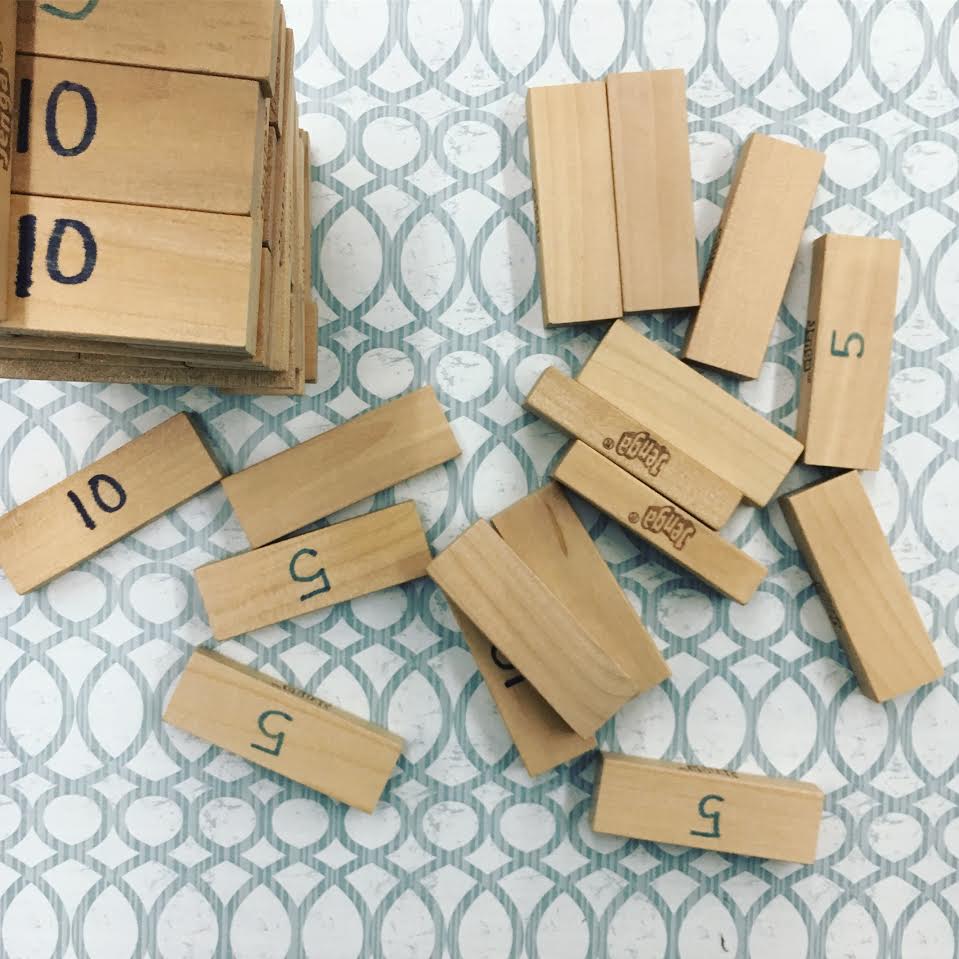NOTE: I had my students play JENGA again this school year. I modified the rules, and the game worked much better! I’ve decided to edit this post to include some the new details. Look below to see my updates!
Evidence-Based Argumentation through Games
Teaching History is often about expressing a point of view, and supporting that point of view with evidence. Obviously, practicing this skill involves lots of writing for students. Earlier in the school year, I had students interact through a silent conversation. I loved that process, and I’m fairly certain that students learned a lot through the experience. Still, that process was silent! I decided that I wanted to find a way where my students could practice this skill without having endless days of silent solitary writing during class time. Therefore, I decided that I would try a new strategy – encouraging skilled argumentation through games.
The Ping Pong and Bucket Strategy
A few weeks ago, I posted about teaching argumentation through games on Instagram. I had my first game day, and my set up was fairly basic. I had a bucket and some ping pong balls. I would present the students with statements that had a clear point of view. Students were divided into two groups – agree and disagree. Each side had to come up with three points that supported their “agree” or “disagree” side of the statement given. If a student provided a sufficient argument with evidence to support their point of view, they could take a shot with a ping pong ball towards the bucket.
This strategy worked fairly well, and students were able to come up with great evidence to support their arguments. The only issue that came up with the process was my students’ aim! Some students were much better than others at aiming for the bucket. Therefore, the process became much more about who could throw a ping pong ball, than who could support an argument with evidence. I also found myself giving credit for almost every statement. I took this information from the first experience and asked my fabulous Instagram community for suggestions.
Introducing “Jackson Jenga”

One of my followers suggested Jenga. (Unfortunately, I couldn’t remember who this was, and I couldn’t find her message in my direct messages.) Points could be added to the interior of the Jenga pieces. When students provided a winning piece of evidence, they could be called up to pull a Jenga piece. Instead of giving credit for all arguments, I would pick the better argument from each team.
I liked this version of the game much better. Jenga was hysterical fun, and because I chose between the two groups, the students had to articulate better arguments for each prompt. For this round, we played “Jackson Jenga, so each of the prompts was about Andrew Jackson. Here’s a sampling:
- The tariffs passed by Congress were unduly harsh on the southerners.
- Jackson was racist.
- Jackson was right to criticize the election of 1824 as unfair.
- Jackson should be removed from the 20 dollar bill.
Each of these statements has a clear point of view, however, these statements are also arguable. Therefore, each side has an equal chance.
This style of teaching and learning could be applied to so many scenarios. I could see utilizing this process to help students set up a DBQ in the future. Of course, I’ll keep you updated!
An Update..
This year I decided I would try the JENGA argument game again. I found it necessary to update the rules. I wanted my students to evaluate each others arguments. Therefore, I decided to divide the class into three teams. The teams would rotate each round – so that each time had a chance to play all three roles. Here are the rules below.
- You will be divided into three teams and the JENGA game will be set up in the middle of the class.
- Taking turns – two of the three teams will be presented with a statement that they will have to argue. One will be the AGREE team and the other will be the DISAGREE team. Each team will present three points of support for their argument (one at a time).
- The third team will be the JUDGE team and decide which argument is better. The team that “won” the argument then gets to pull a JENGA piece for points.
- Each round the teams rotate and a new team becomes the AGREE, DISAGREE or JUDGE team.
- If the tower falls, your team loses.
This process worked so much better! We had time for each of the three groups to play each of the roles. The kids were discussing the relative arguments – and the evidence for those arguments – each round. I didn’t have to do very much, because the kids evaluated each other. At the end of class, many of the kids told me that they loved the activity and that they wanted to do it every day! (This won’t happen.)
Here’s a link to a slideshow with the JENGA rules if you want to play in your classroom.
Have you used any games in your games to develop writing skills?


2 Responses
How do I number the blocks? I didnẗ see instructions, but I love all your advice!
Hi! I just number them randomly 5,10,15,20, etc. There are more of the 5 point blocks and the numbers decrease as the number goes up. I hope that helps!